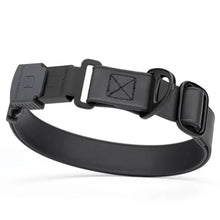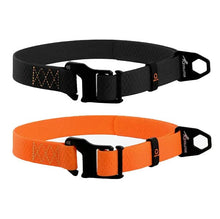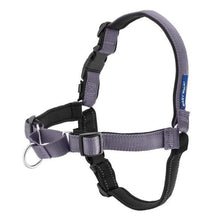How To Teach Your Puppy To Stop Biting You

One of the questions we get asked most often is, “How can I teach my German shepherd puppy to stop biting?”
The struggle is real and most puppies will go through a period of biting or “mouthing.” But there is good news since most puppies will grow out of the biting stage on their own and it can be stopped with some training and patience.
Why Is My Puppy Biting Me?
Puppy biting or mouthing is normal puppy behavior. All puppies love to use their mouths to interact with their littermates, play, chew, and explore their environment. They also have needle-sharp teeth that can quickly turn fun play into pain when they bite too hard.

Since German shepherds are a herding breed, they instinctively use their mouths to communicate and control the movements of other animals. This makes them even mouthier than non-herding breeds and is natural for them. Puppy biting is not aggression and is fun for them.
Puppies also start to lose their first set of teeth at around four months old. Their adult teeth are in by the time they reach six to seven months. But while that is happening, they’ll chew on anything (including your hands and feet) to relieve discomfort and frustration.
This time can be frustrating for some owners. But with understanding why they do it, patience, and preparation, you can help your puppy through this stage of life while teaching them bite inhibition.

What Is Bite Inhibition?
When puppies are tiny, it is adorable when they nibble fingers and toes. But they quickly grow into large dogs with strong jaws full of sharp teeth. So, they must learn how powerful their bite can be.
However, nature has a plan, and they learn to control the intensity of their bite from their littermates. As puppies play and interact, they correct each other when the biting gets too hard. You can continue this lesson when you bring your puppy home.
In the beginning, you can expect your puppy to roughhouse, play, bite, and explore the world with their mouth. This behavior is normal and lots of fun. But when your adorable puppy bites especially hard, you can continue teaching bite inhibition by letting your puppy know they bit you too hard.

You do this by letting out a yelp and immediately stop moving, letting your hand go limp, or stop playing, just as their littermates would have done. In this way, you deliver the message that the bite was too hard, so the fun stopped. You can then resume playing.
Some experts believe that by teaching bite inhibition puppies, you can teach adult dogs to control the strength of their bite if they ever do seriously bite a human. But, since most puppies outgrow puppy biting, it’s not something that continues to be reinforced. It’s up to you to decide how much puppy biting you can tolerate and how you want to control it.
How Do I Teach My Puppy To Stop Biting Me?
There are many methods that you can use to stop your puppy from biting until you move past this stage in your dog’s development. Some methods are harsher than others and are punitive toward natural, fun behavior.

Professional dog trainer Nate Schoemer put together this video to teach the four common methods that can help reduce and prevent biting that is not punishing to your puppy so that you can grow the bond of trust you have with your dog.
- Redirection
Redirection gives the puppy something to bite other than you. Redirection doesn’t teach the puppy not to bite so when the toy goes away, they will play bite again, but it does provide a reprieve from sharp teeth and is a fun option for them.
- Training
Another form of redirection is to practice obedience training. All you need to do is keep some treats handy and when your puppy gets extra mouthy, give them a command to follow and reward them with praise and a treat. This will enable the puppy to switch gears but as with toys, it doesn’t teach them not to bite.

- Gentle Pressure
If you want to stop the puppy from biting rather than redirecting the behavior, you can gently pinch the soft tissue under the chin and under the tongue. Just apply light pressure until the puppy pulls away. Don’t squeeze or cause pain. This method is used to provide a neutral experience that will teach the puppy that biting results in something not so fun. It’s not used as punishment.
- Training Collar
This method requires the puppy to wear a flat collar and be leashed. When the puppy bites, you pop to the leash and tell them no. When the puppy stops biting, you praise them and give them a treat so that they learn to associate not biting with the reward. Just like with gentle pressure, this method is not used to punish or cause pain.
Although puppy biting can be frustrating at times, remember that your puppy is just trying to have fun with you. They’re not being bad or aggressive. This is natural behavior, especially in German shepherds.

Since German shepherds are so smart, it doesn’t take them long to learn what is and isn’t acceptable. But they are also very active and have lots of energy to burn. They easily get frustrated when their needs aren’t met. By providing regular exercise, playtime, and training you can also curb play biting as well as prevent a multitude of problems.
If you need help or think the biting has gotten out of control or are worried about it, contact a trainer familiar with German shepherds and request a consultation. With the right help, you can quickly turn most behavior and training problems around.
We hope you found this information helpful. Please feel free to share it with your friends.
You might also like: Destructive Chewing: Advanced Strategies to Redirect and Manage Your German Shepherd's Behavior






















